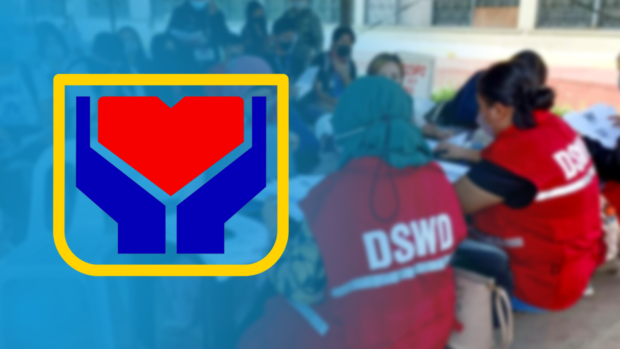Unified bill filed to institutionalize DSWD’s crisis response program

INQUIRER FILE PHOTO
MANILA, Philippines — A substitute bill has been filed, consolidating 11 prior House measures to make the Assistance to Individuals in Crisis Situation (AICS) program a permanent feature under the Department of Social Welfare and Development (DSWD).
Lawyer Simmonette Lim, chief of staff in the office of Laguna 2nd District Rep. Ruth Mariano-Hernandez, told the Inquirer on Thursday that the substitute bill is now pending with the House appropriations committee following a green light from the committee on social services.
A substitute bill is a new version that replaces the old measure in title and body in preparation for introduction to the first chamber.
Rachael Morala, Marikina Rep. Stella Quimbo’s chief of staff, said that instituting AICS is Quimbo’s “number one priority” during a Thursday DSWD-National Capital Region (DSWD-NCR) policy discussion. Quimbo initially proposed the proposal in June 2022 via House Bill (HB) 0498.
Two Senate bills (SB) have also been filed as counterpart measures to the substitute bill: Senator Sonny Angara’s SB 2032 and Senator Raffy Tulfo’s SB 1821.
Article continues after this advertisementREAD: Angara bill seeks to turn DSWD aid program into law
Article continues after this advertisementDissecting the crisis program
Among the 11 consolidated bills is House Bill 6147, or the “Crisis Intervention Program (CIP) Act” filed by Mariano-Hernandez, on which the DSWD-NCR held its policy forum on Thursday.
If AICS is institutionalized, the CIP will be renamed and give financial and material aid to these groups through food, non-food, medical, funeral, transportation, educational, and psychosocial interventions under HB 6147.
Priority sectors in the welfare campaign include marginalized communities with high discrimination exposure and limited access to services, Artemio Bautista, DSWD program development officer, said during the forum.
READ: 600 oil spill victims in Oriental Mindoro receive P3,000 cash aid
Lim also clarified that while the program prioritizes poor households, middle-class individuals or families can receive AICS aid if they suffer substantial financial strain in a crisis.
The DSWD-led crisis program would also establish an Enterprise Information System (EIS), allowing “unified cross-matching” of clients nationwide, including beneficiaries of the country’s Malasakit Centers. The system would be built in partnership with the Department of Information and Communication Technology, according to HB 6147.
The measure places delivery of CIP services upon the shoulders of DSWD central and field offices for psychosocial intervention, onsite and satellite venues, and partnered local government units and other stakeholders.
READ: DSWD reopens office for persons in crisis
Crisis Intervention Offices will also be institutionalized in the welfare authority’s central and field offices and in its Social Welfare and Development Satellite Offices if the program becomes law.
Corruption safeguards
Social workers and local government employees present at the forum raised that safety nets against corruption should be included in CIP legislation.
Responding to one policy stakeholder’s claim that AICS had been used by certain politicians “for their self-interest” in the previous presidential election, Lim assured that corruption safeguards will be “refined” when the law’s implementing rules and regulations (IRR) are established.
Lim also stressed that “the vigilance of the people” is also vital in preventing the misuse of assistance resources.
“I think what’s also important is the vigilance of the people na tingnan ‘yung mga leaders nila. So that’s one of the strong safety nets rin… Let’s also be vigilant to call out the attention of our political leaders,” she said.
Bautista also added that thorough assessment of potential beneficiaries by the DSWD are among safeguarding measures against the abuse of AICS.